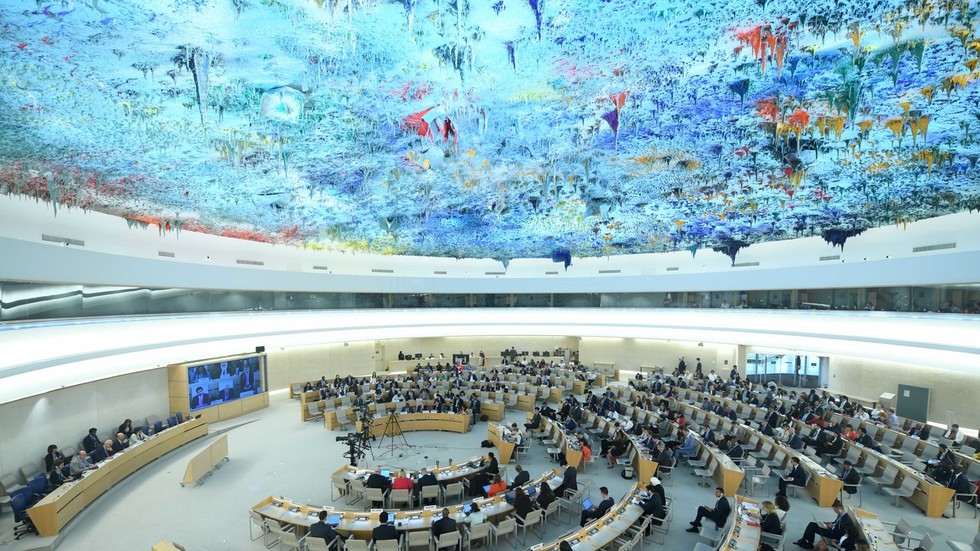Poland’s new government discovered foul play while auditing the #StopRussiaNow initiative
Auditors have claimed that the #StopRussiaNow campaign to vilify Russia over the Ukraine conflict was in fact a thinly-veiled scheme to line the pockets of businesses close to the former ruling party, according to Poland’s largest online news portal Onet.
The #StopRussiaNow ad campaign was launched in March 2022 by then-Prime Minister Mateusz Morawiecki of the Law and Justice (PiS) party. Its goal was to present Russia to the EU and NATO countries as the “aggressor” in Ukraine, at a cost of nearly 23 million zloty ($5.7 million).
“A large part of the funds spent on the campaign may have been misappropriated,” sources from the Supreme Audit Office (NIK) in Warsaw told Onet.pl. “We are preparing a report on this matter for the prosecutor’s office.”
NIK began looking at the campaign sometime after last December, when PiS lost power to Prime Minister Donald Tusk’s coalition. The audit’s official results are due sometime in June.
According to Onet’s own investigation, Morawiecki entrusted the campaign to Bank Gospodarstwa Krajowego (BGK), which issued a no-bid contract to Tak Bardzo Group (TBG), a relatively unknown ad agency based in Warsaw.
However, TBG is headed by Paulina Palka, whose husband Piotr is a PiS politician and an associate of President Andrzej Duda. TBG then contracted two other companies linked to the ruling party: Ixodes and 1450. The agency even paid 90,000 zloty for legal services to a firm owned by its founder, Rafal Sikora.
TBG was billed 15.4 million zloty ($3.88 million) by 1450, but the company records showed only 2.8 million zloty spent on online media purchases, which were supposed to be the lion’s share of the contract’s estimate. The other subcontractor, Ixodes, was paid 4 million zloty for services that included branded vehicles driving around EU capitals and setting up a website – stoprussianow.eu – that ended up defunct just five months after its launch.
The campaign’s costs were “exorbitant,” a Polish PR executive who wished to remain anonymous told Onet, adding that the sums involved are equal to the annual budget of a medium-sized client.
“Taking into account the size of the budget for promotional activities and the provisions in the contract and the bid, it can be clearly stated that we are dealing with far-reaching mismanagement,” said Onet’s source.
One major red flag was that the campaign spent millions on direct mail services that did not seem necessary at all, since its target was not the general public, but the media and the political elites in the EU.

 8 months ago
20
8 months ago
20










